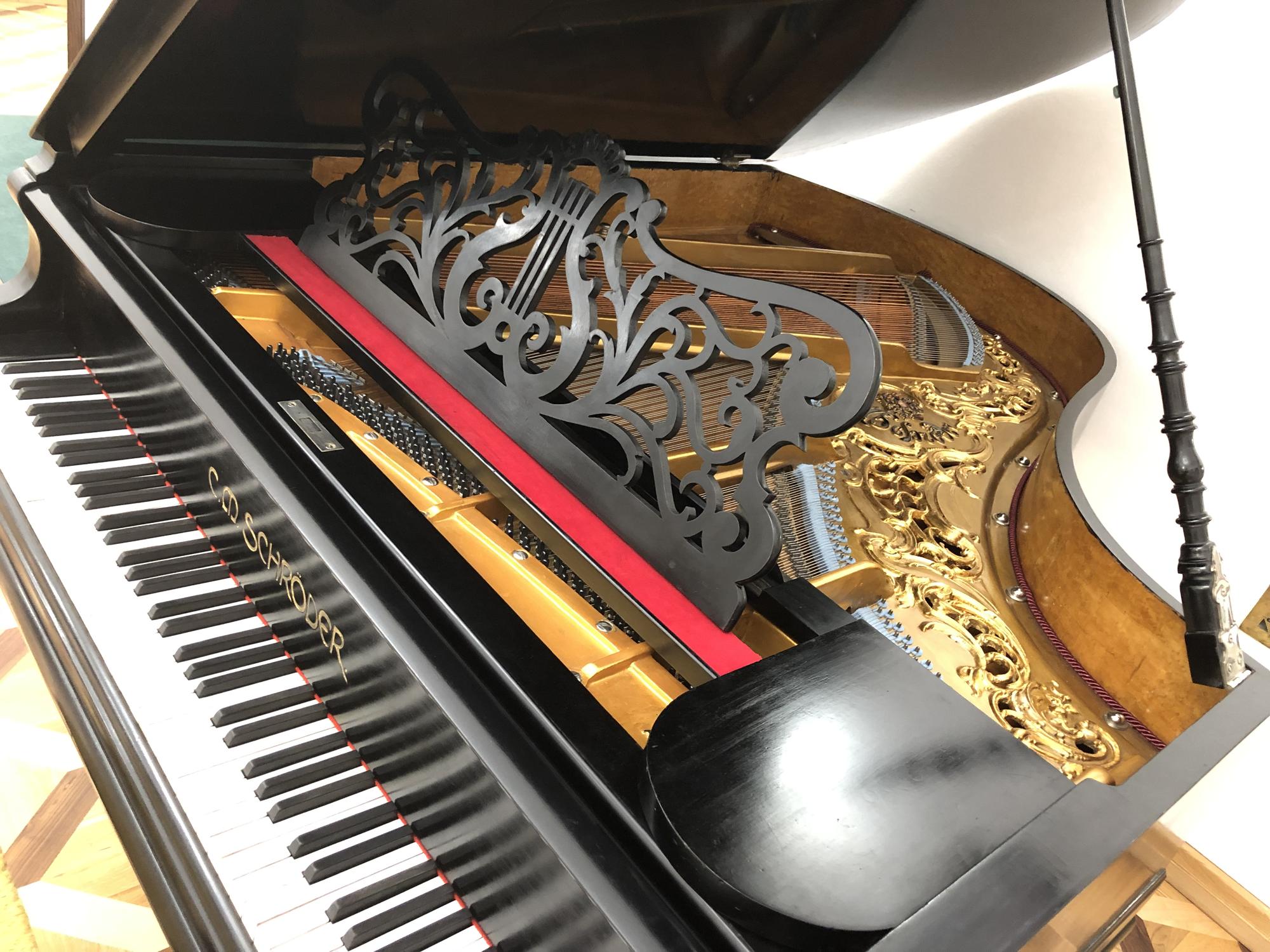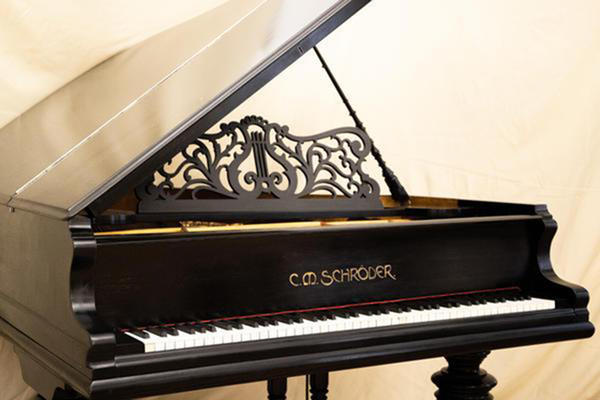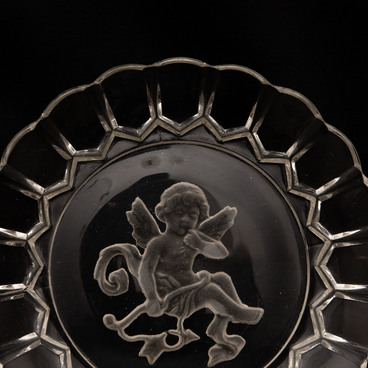During Tobolsk exile, the family of Nicholas II was housed in the governor’s house. Most of the rooms had to be furnished on their own. All necessary furniture and interior items were bought in Tobolsk.
Commissar of the Provisional Government Pavel Makarov that accompanied the Romanov family, insisted that the daughters of Nicholas II should continue their musical education. So, he purchased a Schroder cabinet piano from the former Tobolsk Vice-Governor Nikolai Gavrilov.
Not only the Grand Duchesses played the musical instrument, but also the Empress Alexandra Fyodorovna herself, who received a good musical education in her youth. At family parties, she performed many musical pieces from memory, sometimes playing four hands with her daughter Tatiana.
The daughters of Nicholas II were taught music by court ladies and the Empress herself. According to the memoirs of contemporaries, the eldest of the sisters, Olga Nikolayevna, was the most talented. She “could reproduce any piece of music she had heard.”
Pianos by Carl Michael Schroder’s firm were popular both in Russia and in Europe. They differed from other instruments by their special timbre, durability and reliability of strings. In their work, German masters followed the old traditions that Gottfried Zilberman, a producer of musical instruments of the 18th century and contemporary of Johann Sebastian Bach, also respected. Schroder pianos were not inferior in quality to the products of the most popular manufacturers of that time: Steinway & Sons, Bechstein, Bluthner.
Commissar of the Provisional Government Pavel Makarov that accompanied the Romanov family, insisted that the daughters of Nicholas II should continue their musical education. So, he purchased a Schroder cabinet piano from the former Tobolsk Vice-Governor Nikolai Gavrilov.
Not only the Grand Duchesses played the musical instrument, but also the Empress Alexandra Fyodorovna herself, who received a good musical education in her youth. At family parties, she performed many musical pieces from memory, sometimes playing four hands with her daughter Tatiana.
The daughters of Nicholas II were taught music by court ladies and the Empress herself. According to the memoirs of contemporaries, the eldest of the sisters, Olga Nikolayevna, was the most talented. She “could reproduce any piece of music she had heard.”
Pianos by Carl Michael Schroder’s firm were popular both in Russia and in Europe. They differed from other instruments by their special timbre, durability and reliability of strings. In their work, German masters followed the old traditions that Gottfried Zilberman, a producer of musical instruments of the 18th century and contemporary of Johann Sebastian Bach, also respected. Schroder pianos were not inferior in quality to the products of the most popular manufacturers of that time: Steinway & Sons, Bechstein, Bluthner.


